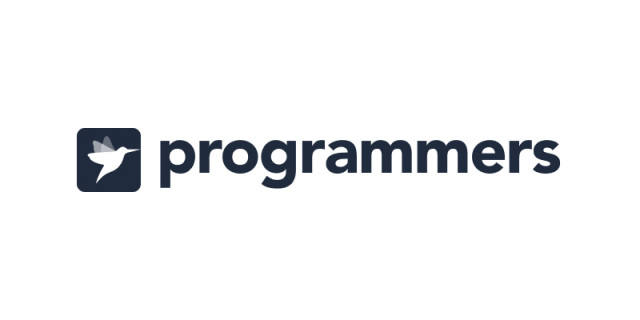
[문제]
지원자가 지원서에 입력한 4가지의 정보와 획득한 코딩테스트 점수를 하나의 문자열로 구성한 값의 배열 info, 개발팀이 궁금해하는 문의조건이 문자열 형태로 담긴 배열 query가 매개변수로 주어질 때,
각 문의조건에 해당하는 사람들의 숫자를 순서대로 배열에 담아 return 하도록 solution 함수를 완성해 주세요.
[제한사항]
info 배열의 크기는 1 이상 50,000 이하입니다.
info 배열 각 원소의 값은 지원자가 지원서에 입력한 4가지 값과 코딩테스트 점수를 합친 "개발언어 직군 경력 소울푸드 점수" 형식입니다.
개발언어는 cpp, java, python 중 하나입니다.
직군은 backend, frontend 중 하나입니다.
경력은 junior, senior 중 하나입니다.
소울푸드는 chicken, pizza 중 하나입니다.
점수는 코딩테스트 점수를 의미하며, 1 이상 100,000 이하인 자연수입니다.
각 단어는 공백문자(스페이스 바) 하나로 구분되어 있습니다.
query 배열의 크기는 1 이상 100,000 이하입니다.
query의 각 문자열은 "[조건] X" 형식입니다.
[조건]은 "개발언어 and 직군 and 경력 and 소울푸드" 형식의 문자열입니다.
언어는 cpp, java, python, - 중 하나입니다.
직군은 backend, frontend, - 중 하나입니다.
경력은 junior, senior, - 중 하나입니다.
소울푸드는 chicken, pizza, - 중 하나입니다.
'-' 표시는 해당 조건을 고려하지 않겠다는 의미입니다.
X는 코딩테스트 점수를 의미하며 조건을 만족하는 사람 중 X점 이상 받은 사람은 모두 몇 명인 지를 의미합니다.
각 단어는 공백문자(스페이스 바) 하나로 구분되어 있습니다.
예를 들면, "cpp and - and senior and pizza 500"은 "cpp로 코딩테스트를 봤으며, 경력은 senior 이면서 소울푸드로 pizza를 선택한 지원자 중 코딩테스트 점수를 500점 이상 받은 사람은 모두 몇 명인가?"를 의미합니다.
My Code
1트
항목별로 Map을 만들어 처리함
info 2차로 loop돌려서 속하는 해시맵에 add
그리고 query 또 2차 돌면서 각 항목별 map을 탐색
마지막으로 교집합인 list의 size를 리턴 배열에 넣고 리턴
결과? 쥰내 느리다.
효율성 빵점
import java.util.*;
class Solution {
public int[] solution(String[] info, String[] query) {
int[] ret = new int[query.length];
int[] scores = new int[info.length];
Map<String, List<Integer>> lan = new HashMap<>();
lan.put("cpp", new ArrayList<Integer>());
lan.put("java", new ArrayList<Integer>());
lan.put("python", new ArrayList<Integer>());
lan.put("-", new ArrayList<Integer>());
Map<String, List<Integer>> job = new HashMap<>();
job.put("backend", new ArrayList<Integer>());
job.put("frontend", new ArrayList<Integer>());
job.put("-", new ArrayList<Integer>());
Map<String, List<Integer>> work = new HashMap<>();
work.put("junior", new ArrayList<Integer>());
work.put("senior", new ArrayList<Integer>());
work.put("-", new ArrayList<Integer>());
Map<String, List<Integer>> food = new HashMap<>();
food.put("chicken", new ArrayList<Integer>());
food.put("pizza", new ArrayList<Integer>());
food.put("-", new ArrayList<Integer>());
for(int i=0 ; i<info.length ; i++) {
String[] data = info[i].split(" ");
// 개발언어
setApps(lan, data[0], i);
// 직군
setApps(job, data[1], i);
// 경력
setApps(work, data[2], i);
// 소울푸드
setApps(food, data[3], i);
// 코딩점수
scores[i] = Integer.valueOf(data[4]);
}
// ex) "java and backend and junior and pizza 100"
for(int i=0 ; i<query.length ; i++) {
String[] q = query[i].replaceAll(" and","").split(" ");
//print
// for(String tmp : q) {
// System.out.print(tmp+"@");
// }
// System.out.println("");
List<Integer> list = lan.get(q[0]);
for(int j=1 ; j<=3 ; j++) {
//print
// System.out.println("q["+j+"] : "+q[j]);
// if(list==null) {
// System.out.println("list is null");
// break;
// }
List<Integer> require = null;
if(j==1) require = job.get(q[j]);
else if(j==2) require = work.get(q[j]);
else require = food.get(q[j]);
//print
// if(require==null) {
// System.out.println("require is null");
// break;
// }
//if(list.size()==0 || require.size()==0) break;
list = getOverlaps(list, require);
}
// q[4] : 코테점수
int cnt = 0;
for(Integer n : list) {
if(Integer.valueOf(q[4]) <= scores[n]) cnt++;
}
ret[i] = cnt;
}
return ret;
}
public void setApps(Map<String, List<Integer>> hm, String d, int num) {
hm.get(d).add(num);
hm.get("-").add(num);
}
public List<Integer> getOverlaps(List<Integer> list, List<Integer> comp) {
if(comp.size()>list.size()) {
return getOverlaps(comp, list);
}
List<Integer> ret = new ArrayList<>();
for(Integer l : list) {
if(comp.contains(l)) ret.add(l);
}
return ret;
}
}2트
다른분들의 풀이 참고함.
info의 모든 케이스들에 대한 hashmap 하나만 만들어서 관리
4항목이고 "-"도 가능하니 2^2*4인 16가지의 종류가 있어서 그렇게 많지 않음.
어니 그래도 효율성 테스트에서 빵점.
1트 보단 괜찮았지만 그래도 느리다?
다른 풀이 다시 참고
import java.util.*;
class Solution {
private Map<String, List<Integer>> hm;
public int[] solution(String[] info, String[] query) {
hm = new HashMap<>();
int[] scores = new int[info.length];
int[] ret = new int[query.length];
for(int i=0 ; i<info.length ; i++) {
String[] datas = info[i].split(" ");
scores[i] = Integer.valueOf(datas[4]);
setMap(datas, "", 0, i);
}
for(int i=0 ; i<query.length ; i++) {
String[] q = query[i].replaceAll(" and","").split(" ");
StringBuilder sb = new StringBuilder();
sb.append(q[0]).append(q[1]).append(q[2]).append(q[3]);
if(!hm.containsKey(sb.toString())) continue;
List<Integer> list = hm.get(sb.toString());
int cnt = list.size(), cutLine = Integer.valueOf(q[4]);
for(int num : list) {
if(cutLine>scores[num]) cnt--;
}
ret[i] = cnt;
}
return ret;
}
public void setMap(String[] datas, String data, int len, int num) {
if(len==4) {
insertMap(data, num);
return;
}
setMap(datas, data+datas[len], len+1, num);
setMap(datas, data+"-", len+1, num);
return;
}
public void insertMap(String data, int num) {
if(!hm.containsKey(data)) {
hm.put(data, new ArrayList<Integer>());
}
hm.get(data).add(num);
}
}3트
score 이분법...
원래는 info의 index값으로 list에 넣고
마지막에 스코어들이 들어있는 score 배열과 커트라인 비교하여 카운트하는거였는데, 처음부터 점수를 넣고 그다음 sort하고 이분법을 하면 더 효율적이네..
어쨌든 정답이면 뭐하나 효율적이지 못하게 풀었었는데...
또 하나 배운다
import java.util.*;
class Solution {
private Map<String, List<Integer>> hm;
public int[] solution(String[] info, String[] query) {
hm = new HashMap<>();
//int[] scores = new int[info.length];
int[] ret = new int[query.length];
for(int i=0 ; i<info.length ; i++) {
String[] datas = info[i].split(" ");
//scores[i] = Integer.valueOf(datas[4]);
setMap(datas, "", 0, Integer.valueOf(datas[4]));
}
// 점수 정렬
for(Map.Entry<String, List<Integer>> e : hm.entrySet()) {
List<Integer> scores = e.getValue();
Collections.sort(scores);
}
for(int i=0 ; i<query.length ; i++) {
String[] q = query[i].replaceAll(" and","").split(" ");
StringBuilder sb = new StringBuilder();
//sb.append(q[0]).append(q[1]).append(q[2]).append(q[3]);
sb.append("");
if(!q[0].equals("-")) sb.append(q[0]);
if(!q[1].equals("-")) sb.append(q[1]);
if(!q[2].equals("-")) sb.append(q[2]);
if(!q[3].equals("-")) sb.append(q[3]);
String s = sb.toString();
if(!hm.containsKey(s)) continue;
List<Integer> score = hm.get(s);
int cutLine = Integer.valueOf(q[4]);
int start = 0, end = score.size()-1;
// 이분탐색
while(start<=end) {
int mid = (start+end)/2;
if(score.get(mid) < cutLine) {
start = mid+1;
} else {
end = mid-1;
}
}
ret[i] = score.size()-start;
}
return ret;
}
public void setMap(String[] datas, String data, int len, int score) {
if(len==4) {
insertMap(data, score);
return;
}
setMap(datas, data, len+1, score);
setMap(datas, data+datas[len], len+1, score);
return;
}
public void insertMap(String data, int score) {
//System.out.println(data);
if(!hm.containsKey(data)) {
hm.put(data, new ArrayList<Integer>());
}
hm.get(data).add(score);
}
}